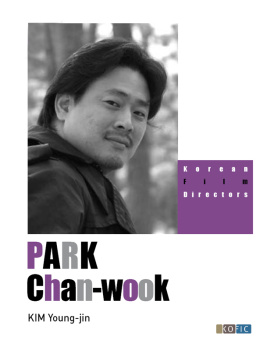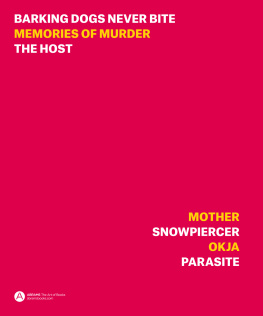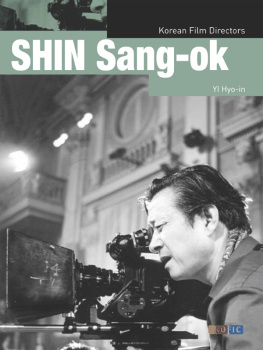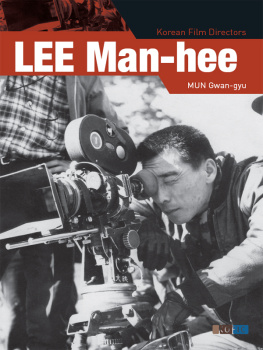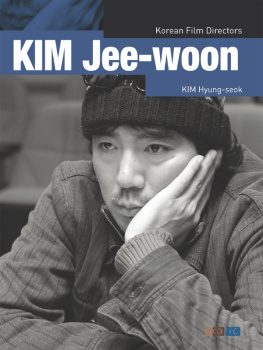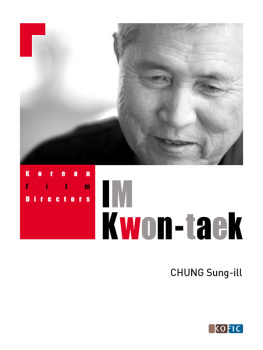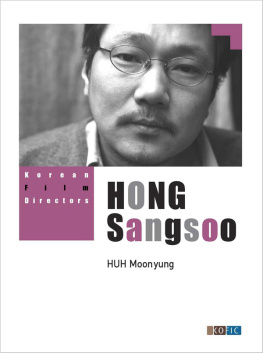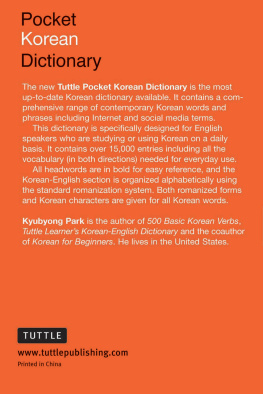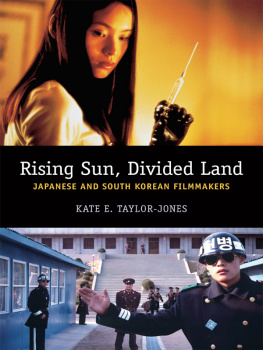PARK Chan-wook
Written by KIM Young-jin
Translated by Colin A. Mouat
PARK Chan-wook
Written by KIM Young-jin
Copyright 2007 by Korean Film Council 
All Rights Reserved
No part of this book may be reproduced in any form without the written permission of the publisher.
Korean Film Council
206-46 Cheongnyangni-dong, Dongdaemun-gu, Seoul 130-010, Korea
Phone (82-2) 958-7598
Fax (82-2) 958-7590
http://www.kofic.or.kr/english
email:
Published by Seoul Selection
B1 Korean Publishers Association Bldg., 105-2 Sagan-dong, Jongno-gu, Seoul 110-190, Korea
Phone (82-2) 734-9567
Fax (82-2) 734-9562
http://www.seoulselection.com
email:
Korean Film Directors
The Korean Film Directors series is one of Korean Film Councils projects to furnish an international audience with insight and analysis into the works of Koreas most representative film directors.
The series aims to expand upon the existing body of knowledge on Korean film, educate the general public of the history of Korean film and Korean film directors, and draw attention to the significance of works that represent Korean film. Critics who share their insight in the series are leaders in their respective specialties. Each volume includes critical commentary on films, an extensive interview with the director, and a comprehensive filmography for reference.
P re f a ce
The younger generation of Korean film directors makes movies without awareness of the traditions of Korean cinema past. This atmosphere of the adventurous spirit of children without fathers is the most significant force behind the dynamic quality of modern Korean film. Directors of this generation show an intense hunger to absorb all traces of film history worthy of admiration, including Hollywood genre films, European art films, B-movies, and make them their own. Because of the environment in Korean theaters from the mid-1980s to the 1990s, it was impossible to watch the classics on the cinema screen, so this generation approached the classics of the past and present and gained access to film mainly through video. They are unable to claim affiliation to any lineage within film history, but at the same time they show a sponge-like resilience where they can assume whichever lineage suits them, and though they might make films in a manner that appears playful, they also aim at a spirit of rebellion capable of provoking the group consciousness of the times.
PARK Chan-wook is the director who carries the status of elder brother for this generation of film lovers who rose into the mainstream of the Korean film industry beginning in the 2000s. The director, a late bloomer who made only two films in the 1990s while simultaneously working as a critic, has constructed his very own world, combining the uncompromising directorial character of a B-movie with an elliptical and poetic style that can appeal to the sensibilities of the post-MTV generation, while unafraid to draw upon genre conventions and star image. The dizzying critical and commercial success he achieved in the 2000s indicates an important characteristic of modern Korean film: while putting forward a plot and style that is goal-oriented to all outward appearance, PARK includes conclusions in his films that ultimately carry both character and audience to a point where the goals have disintegrated and represent an expression of his artistic intent to present the face of a complex society, which does not permit the route of a dualistic and straightforward plot.
PARK is the proverbial guy whos seen too many movies, one who has steadily maintained a passion for film from youth to the present. He is one of those artists whose desire to watch movies is as strong as an appetite for food or sex. PARK, who would write about films if he couldnt make them, directs films as an extension of his desire to see the kind of films that he himself likes. Most of the films he has made in the 2000s prove that this is not an attempt to pander to the desires of the audience at the center and periphery of film history, but rather a product of a provocative impetuosity that does not hide its intent to communicate with the audience on an even basis or occasionally confront them. That these films have seen considerable success at the box office is a notable cultural phenomenon, one that has crossed the boundaries of contemporary Korean cinema and drawn a universally favorable response mainly through Western film festivals. While eliciting conflicting emotions, where many people are fascinated and yet disturbed by his films, PARK repeatedly experiments with content and style that pushes the irony of negativity to its very limit.
The feeling of existential crisis within the human beings living in this society is realized through various divergent genres and themes and in completely different forms. PARK wants to have it written on his future tombstone that he was a director who consistently and prolifically made new films that were completely different from his older ones. The peculiar discordance that reaps the effects of bold, close-up images draw strong audience empathy while willingly and repeatedly experimenting with ellipsis and jumps in narrative and style. In this cinematic world PARK Chan-wook charges his films with unconventional energy. This is the strength that makes it possible to always view his films in the present tense.
PARK will continue to perform stunts verging on the acrobatic between genre convention and directorial individuality in the future as he has done up until now. This book was written as a small introductory guide that looks with an insiders eye and gropes roughly for the roots and stems of PARKs cinematic world. The interviews printed in this book were constructed by rearranging interviews that I had conducted with PARK while working as a critic. As I wrote this book, I realized anew how more than 20 years have passed since I met PARK in our youth. In any event, that time has also been a time when the Korean movie industry, which had been lingering in the dark ages for a spell, took a stretch once again and made a new leap. I am glad that I was able to watch from the side as PARK Chan-wook performed a central role in the process of that new leap forward.
KIM Young-jin
Summer, 2007
Seoul
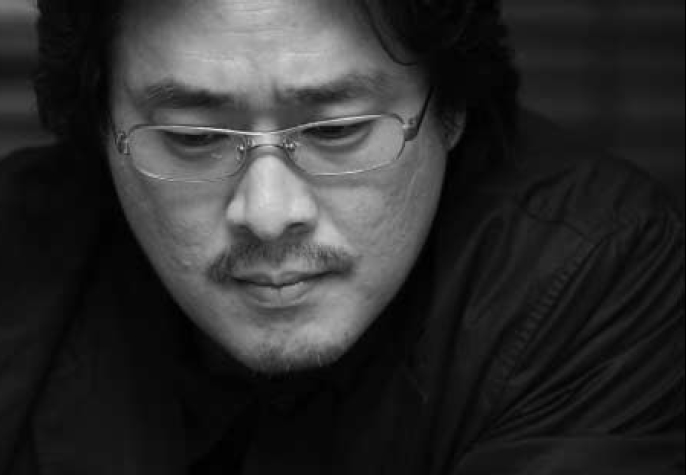
I nt ro duct io n
I first met director PARK Chan-wook as a university freshman in a campus restaurant at Sogang University, where he was studying. He was a philosophy student two years my senior. He appeared in front of me wearing a drill uniform and chain-smoking, with a dirty, disheveled appearance, as though he hadnt bathed. Just when I thought to myself that he might have a bit of a troublemakers temperament, I heard him talking with a younger student sitting next to him. I saw Jean-Luc Godards Contempt yesterday and I came to understand what anti-bourgeois camera style was. The camera was moving horizontally I listened closely to what he was saying, thinking, Well, look at this. During the conversation, PARK took pleasure in quoting book passages and continuously brought up the impressive points of the movies hed seen recently. Through a special exhibition of Alfred Hitchcock movies shown on video for members of the student film club at Sogang, he made the decision that he would live his life as a film director. As I saw him saying this and expressing his admiration for the films of Alfred Hitchcock, it was enough to arouse a desire in me to see the films he mentioned. Then he stated that through repeated viewings of Hitchcocks

